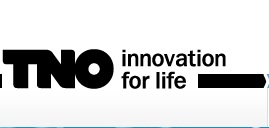After two years, following our commissioning of the Netherlands-based research institute TNO, we are delighted to announce the 'ahead of print' publication of a ground-breaking approach to calculating optimum vitamin and mineral intakes for different population groups. Now that the new methodology is in the public domain, one that involves not just risk assessment, but risk-benefit assessment for individual nutrient forms, we will work hard to ensure that it is taken into account by European authorities that have been committed to establishing harmonised maximum (and minimum) levels for vitamin and mineral supplements EU-wide. We are grateful to the wide range of natural health interests who supported the research financially and donated to ANH-Intl for this purpose, and to Solgar Netherlands, the biggest single donor. Find out more in our release issued today...
ANH-Intl Press Release
1 June 2016
Download ANH-Intl press release as PDF
Could you be over- or under-dosing with vitamins or minerals?
Dutch scientists develop ground-breaking risk-benefit approach to determine optimum intakes
Vitamins and minerals – can they be too much of a good thing? Or are some people suffering from deficiencies in these essential nutrients? Thanks to the work of a group of Dutch scientists, we may soon be able to know exactly what we need, depending on our age, stage of life, gender and individual requirements.
In recent years, there has been considerable confusion over what levels are optimum for given population groups. Some research has warned about high doses of isolated vitamins, particularly synthetic ones, such as vitamin E, beta-carotene and folic acid. On the other hand, various nutritional surveys have shown some groups to be deficient in vitamin D, iron or magnesium.
The new approach, just accepted for publication in the peer-reviewed journal Critical Reviews in Nutrition and Food Science, integrates all available scientific data on both risks, from inadequacy and excess, as well as on benefits to offer a range of doses of specific vitamin and mineral forms suitable for specific populations.
Lisette Krul, MSc from the Netherlands Organisation for Applied Scientific Research (TNO), leading the research, says, “Our approach involves integrating all available data taking into account risks of deficiency, the higher requirements or benefits for particular populations while also considering toxicity.”

The work has been published at a time when the European Commission is considering various options to impose EU-wide limits on both maximum and minimum amounts of vitamins and minerals consumed as food supplements as part of its framework Food Supplements Directive.
There is increasing recognition that various estimates of intake, such as estimated average requirements (EARs), nutrient reference values (NRVs) or recommended daily allowances (RDAs), are either out-of-date with respect to the latest science or do not adequately reflect optimal levels of intake for particular nutritional benefits. Using such a novel approach to determine optimal levels of micronutrient intake could offer a significant advance for personalised nutrition.
The research culminating in the paper has been on-going for two years and was commissioned by the Alliance for Natural Health International, a non-profit alliance of consumer and stakeholder interests in natural and sustainable health care.
Executive director of the alliance, Robert Verkerk PhD, said, “The methods the European Commission has considered so far for regulatory purposes have focused only on risk. They are based on making sure even the most sensitive person wouldn’t suffer any kind of adverse effect, however slight or temporary, from the most toxic form of a given nutrient.
“We welcome the new approach proposed by TNO scientists,” indicated Dr Verkerk. He added, “If the other methods that have been under consideration by the European Commission were turned into law, they would prevent a lot of people getting the amounts of nutrients they really need. If you applied the same thinking to conventional foods, you'd end up banning all foods containing wheat and dairy because people sensitive to gluten or lactose react adversely to these foods even though others may benefit from the consumption of these foods.”
The manuscript of the full paper, Quantifiable risk-benefit assessment of micronutrients: from theory to practice, is available for electronic download ahead of print here.
ENDS.
NOTES FOR EDITORS
For more information please contact:
Alliance for Natural Health International
The Atrium, Curtis Road
Dorking, Surrey, RH4 1XA
United Kingdom
T: +44 (0)1306 646 600
About The Alliance for Natural Health International
Alliance for Natural Health International is an independent organisation established in 2002 that promotes natural, sustainable and bio-compatible approaches to health care—using the tools of ‘good science’ and ‘good law’. Its four core activities are education and awareness-raising, research, legal and advocacy. ANH-Intl’s mission of mission that aims to increase adoption of natural health approaches covers a wide range of issues including the use of altered diets and lifestyles as well as micronutrients to influence health outcomes.
Founded by Robert Verkerk PhD, an internationally acclaimed expert in sustainability, ANH operates principally from its two bases, in Dorking UK and Atlanta, GA, USA.
ANH collaborates with scientists, lawyers, medical doctors, health practitioners, politicians, consumers and companies to help shape scientific and legal frameworks that widen support for, and adoption of, natural healthcare.
Previous relevant papers by Robert Verkerk PhD
Verkerk, R.H.J., Hickey, S., A critique of prevailing approaches to nutrient risk analysis pertaining to food supplements with specific reference to the European Union. Toxicology (2010), Nov 28; 278(1): 17-26. doi: 10.1016/j.tox.2009.12.017. Epub 2009 Dec 23. Review.
Verkerk, R.H.J., The paradox of overlapping micronutrient risks and benefits obligates risk/benefit analysis. Toxicology (2010), Nov 28; 278(1): 27-38. doi: 10.1016/j.tox.2010.02.011. Epub 2010 Feb 24. Review.
About TNO
TNO has some 3000 professionals who put their knowledge and experience to work in creating smart solutions to complex issues. These innovations help to sustainably strengthen industrial competitiveness and social wellbeing. We are partnered by some 3000 companies and organisations, in the Netherlands and around the world. For more information about TNO and the five societal themes that are the focus of our work, go to www.tno.nl








Comments
your voice counts
There are currently no comments on this post.
Your voice counts
We welcome your comments and are very interested in your point of view, but we ask that you keep them relevant to the article, that they be civil and without commercial links. All comments are moderated prior to being published. We reserve the right to edit or not publish comments that we consider abusive or offensive.
There is extra content here from a third party provider. You will be unable to see this content unless you agree to allow Content Cookies. Cookie Preferences